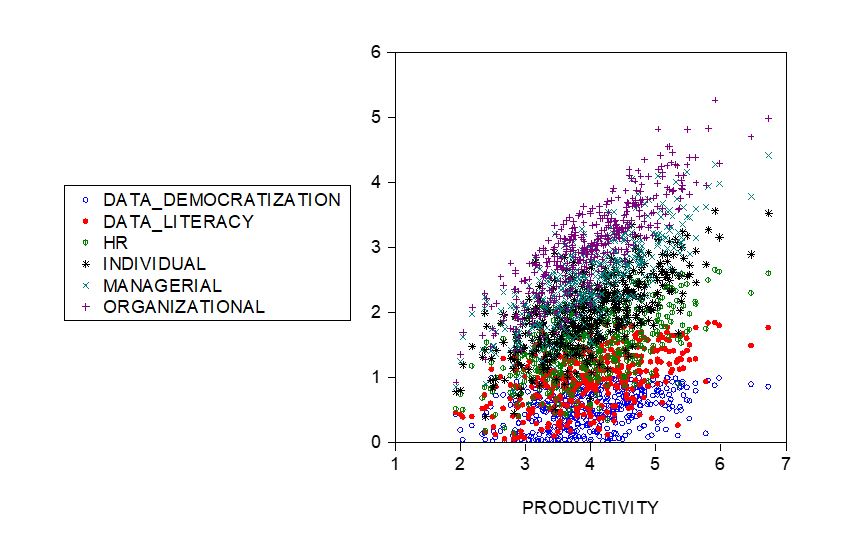Impact of Data Democratization and Data Literacy on Employee Productivity
Keywords:
Data democratization, Data literacy, Employee productivity, Independent variables, Multiple regression analysis, HR factors, Individual factors, Managerial factors, Organizational factorsAbstract
Background: The significance of Data democratization and Data literacy, as well as the importance of employee productivity, cannot be overemphasized in today's fast-paced and highly data-centric business environment. To better understand the relationship between these critical elements, the present study was undertaken to investigate the impact of various independent variables, including Data democratization, Data literacy, HR factors, Individual factors, Managerial factors, and Organizational factors on employee productivity.
Method: A thorough and comprehensive multiple regression analysis was performed to shed light on the interplay between these variables.
Results: The results of the analysis revealed that all independent variables had a substantial and statistically significant positive effect on employee productivity. The coefficients for Data democratization, Data literacy, HR factors, Individual factors, Managerial factors, and Organizational factors were 1.028746, 0.957032, 0.765698, 0.991522, 0.917948, and 1.034905, respectively. Additionally, the standard error, t-statistic, and Prob. values were also computed for each variable, providing robust evidence of the significance of the relationships between the independent variables and employee productivity. The partial regression coefficients reflect the impact of each independent variable on employee productivity while controlling for the effects of the other independent variables. This allows us to gain an understanding of the unique contribution of each variable to the explained variance in employee productivity.
Conclusion: The results of this study underscore the pivotal role that Data democratization, Data literacy, HR factors, Individual factors, Managerial factors, and Organizational factors play in determining employee productivity. The findings suggest that organizations can enhance employee productivity by focusing on these critical factors and creating a supportive environment that nurtures their growth and development. The present study provides valuable and insightful information into the relationship between employee productivity and various independent variables. While the results should be approached with a certain degree of caution, they point towards the potential for organizations to adopt a multi-pronged approach to improving employee productivity by focusing on Data democratization, Data literacy, HR factors, Individual factors, Managerial factors, and Organizational factors. Further research is necessary to validate these findings and to explore the causal relationships between these variables.




